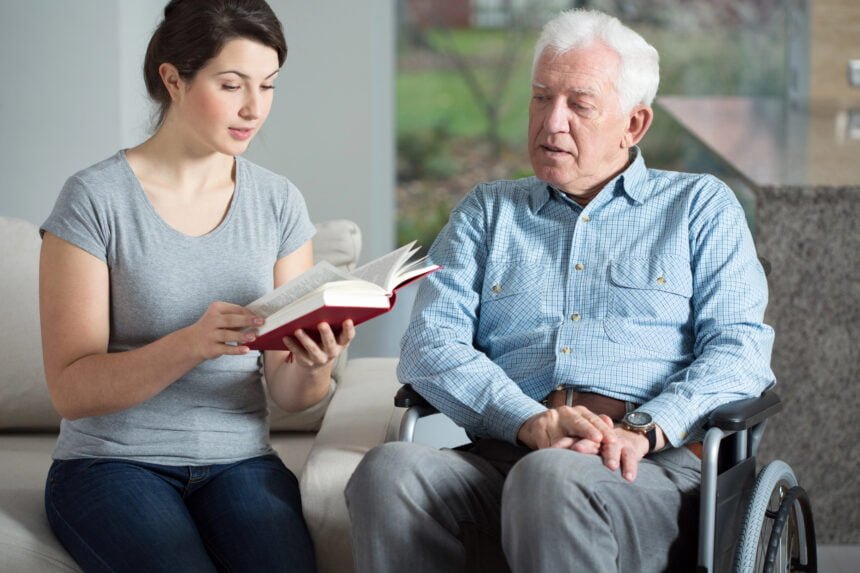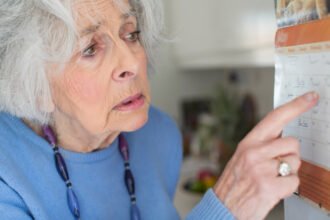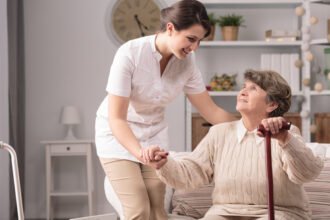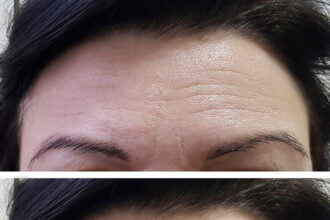Seniors face a number of challenges as they age. Almost 95% of seniors over the age of 60 have at least one chronic health issue and 80% have at least two.
- Caregivers Need to Know How to Help Seniors Live Healthy Lives
- Palliative care and end-of-life support:
- Dementia and Alzheimer’s care:
- Pediatric care and special needs:
- Cultural competence and diversity:
- What is the Importance of Continuing Education to Caregivers?
- Enhanced patient outcomes:
- Reduced stress and burnout:
- Empowerment and confidence:
- Adaptability to changing circumstances:
- Networking and peer support:
- Professional growth and career advancement:
As seniors get older, they are likely to need the support of a trained care provider to stay healthy. It is important for healthcare providers to be aware of the different health problems aging seniors face and be trained to handle them properly. They should also know how to teach seniors to live healthy lifestyles.
Caregivers Need to Know How to Help Seniors Live Healthy Lives
Caregivers have a lot of responsibility. In fact, any job that includes humans, that entails a high amount of responsibility and care, not to mention the continuous training that one would have to go through to keep up to date with industry standards, including when helping them at home. When it comes to specialized training, here are four of the most important:
Palliative care and end-of-life support:
Sometimes caregivers find themselves supporting those in terminal illness or at the end of their lives. In this case, specialized training becomes imperative. Here are some key aspects:
- Understanding pain management: caregivers need to learn about pain assessment, the different types of pain (e.g. nociceptive and neuropathic) as well as suitable interventions. Thus, they should be able to give analgesics, recognize signs indicating pain and provide emotional comfort during these painful times.
Example: Imagine a caregiver working in a palliative care facility where an elderly cancer patient is under their care dying painfully; good pain management ensures that the patient’s comfort and dignity is upheld during his last days.
- Emotional support and communication: caregivers need to develop empathic communication skills. They need to listen actively, validate feelings and address existential concerns. One way in which a caregiver supporting an elderly person who has terminal illness can provide emotional comfort is through validating their fears and being present with them. Active listening, bereavement support, and facilitating meaningful conversations: these are just a few topics that are covered in training sessions.
Example: Hence comforting them by acknowledging their fear while at their side would be one way through which caregiving professional may enhance emotional wellness of older persons suffering from deadly ailments.
Dementia and Alzheimer’s care:
When taking care of dementia or Alzheimer’s patients it necessitates specific knowledge due to unique challenges arising from cognitive degeneration. Here’s what caregivers must know about:
- Cognitive Impairment awareness: Caregivers must be knowledgeable about the phases of dementia, typical patterns surrounding memory loss and behavioral alterations. Teaching can include strategies on how to deal with difficult behaviors, ways to encourage participation, and safety measures to take into account.
Example: A caregiver that uses labels on drawers as visual cues for an Alzheimer’s patient looking for personal items
- Creating a therapeutic environment: Training should focus on creating a calm, structured environment. Caregivers can learn about sensory stimulation, reminiscence therapy and validation techniques.
Example: For example in an attempt to foster positive memories, a caregiver can play familiar music or display family photos to this person with dementia.
Pediatric care and special needs:
Caregivers working with children or people with special needs require specific skills. Here’s what specialized training can cover:
- Child development and milestones: caregivers need to understand the stages of child development, including physical, cognitive and emotional milestones. Training can cover age-appropriate activities, nutrition and safety.
Example: This means that a caregiver of a toddler who has delayed development may change play activities for them so that they develop motor skills.
- Behavioral strategies are an essential aspect of training for children with special needs such as autism and ADHD. Caregivers are taught positive reinforcement, visual schedules, and sensory integration as effective components in managing the behavior of these children. The implementation of these techniques can play a significant role in improving the child’s compliance level and cooperation with daily tasks.
Cultural competence and diversity:
Caregivers work with diverse populations. Training should promote cultural sensitivity and awareness:
- Understanding cultural differences: caregivers learn about cultural norms, beliefs and practices related to health and care. This includes respecting dietary preferences, religious rituals and communication styles.
Example: A caregiver caring for an immigrant family can adapt meal plans to align with cultural preferences.
- Language skills: training can include basic phrases in different languages to facilitate communication. Caregivers should also inquire about interpretation services.
Example: A Spanish-speaking caregiver can provide better care to a monolingual Spanish-speaking client.
Specialized training gives caregivers the knowledge and skills to manage complex caregiving scenarios. By adopting diverse perspectives and integrating evidence-based practices, caregivers can enhance their ability to provide compassionate and effective care. Remember that every caregiving situation is unique, and that continuous learning is essential to adapt to changing needs. If you’d like to know more, head over to read some fantastic articles by Amazing Home Care.
What is the Importance of Continuing Education to Caregivers?
- Better caregiving skills and competencies:
Continuous learning helps caregivers acquire contemporary knowledge and practical skills. This is important given that medical practices, technologies and care methods change from time to time. For instance, they may study new wound care procedures or new ways of administering medicine so as to provide the best care possible.
Example: A home health aid attends seminars about dementia. They are better able to manage difficult situations when caring for the elderly suffering from Alzheimer’s disease by learning communication strategies, behavior management techniques and safety measures.
Enhanced patient outcomes:
Continuing education among caregivers has been associated with improved patient outcomes. When they understand disease progression, drug reactions and preventive measures caregivers can take a proactive approach in addressing health matters.
Example: A caregiver taking care of her diabetic loved one learns how to monitor blood sugar levels through glucose meters, dietary patterns as well as insulin injection methods. As a result, they can help maintain stable blood sugar levels which reduces the risk of complications.
Reduced stress and burnout:
Caregivers are taught coping mechanisms, stress management techniques and self-care strategies through continuous learning. To ensure emotional stability these tools are paramount.
Example: A caregiver takes part in stress management training. This helps them understand what mindfulness entails, time management techniques and why it is necessary for them to take breaks sometimes during their caregiving work so as not to feel overwhelmed by it.
Empowerment and confidence:
Confidence develops through learning. When caregivers come across something new then have the right information on how to make decisions confidently hence this plays a role in building their confidence while dealing with patients.
Example: A hospice nurse enrolls in an end-of-life course program because she wants to improve her skills when handling patients who might be dying soon or maybe close relatives who will come visiting them during this critical moment of their lives. These include understanding the process of dying, pain control and emotional support for both the clients as well as their families.
Adaptability to changing circumstances:
Caregivers are often faced with unexpected scenarios. Caregivers are prepared through continuous learning in order to handle these situations. Whether it is adjusting to a new diagnosis or adapting to changing mobility needs, people learn how to be flexible.
Example: A caregiver assisting a stroke survivor attends classes about home adaptations, aids for daily living and physical therapy regimens. This helps them make necessary adjustments within the living area while at the same time offer meaningful support during recovery.
Networking and peer support:
Educational programs and workshops create opportunities for caregivers to connect with their peers. Through sharing ideas, discussing difficulties encountered and gaining knowledge from others’ experiences, they develop fellowship among themselves.
Example: A caregiver joins a group of parents whose children have autism. They share information on managing problematic behaviors, teaching materials or gadgets used in imparting knowledge, how they can recover emotionally when feeling overwhelmed by caring for their sons or daughters exhibiting this condition. Such companionship gives one great emotional backup plus practical advice concerning such situations.
Professional growth and career advancement:
In professional caregiving courses continuing education enhances career prospects. Certifications enhance prospects of better jobs that are available after achieving specialized trainings as well as advanced skills in this field.
Example: A Certified Nursing Assistant (CNA) chooses to extend their training into wound care and infection control thereby qualifying them to work in either hospital settings or rehab facilities.
To sum up, lifelong learning is not only important for caregivers but also crucial in maintaining high quality care standards. This approach allows caregivers contribute not only towards personal development but also patients’ welfare as well as improvement of general healthcare provision in the society.










